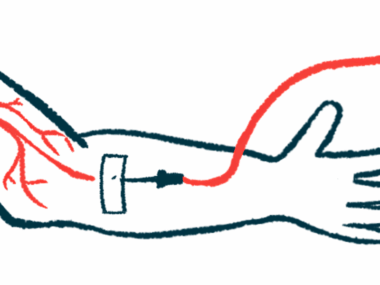My twin had thymectomy surgery 26 years ago, but I didn’t know
Why wasn't I more aware of his procedures for myasthenia gravis?
Written by |

In the Irish writer Oscar Wilde’s play “The Importance of Being Earnest” (1895), he writes that memory “is the diary that we all carry about with us.” Still, our memories can’t always be trusted; some scientific research even suggests that our memories can be unreliable. Emotions, voluntary forgetfulness, mental manipulation of others, and the passage of time can cause false, distorted, and reconstructed memories.
We sometimes forget what we want to forget and remember what we want to remember as coping mechanisms to preserve our emotional safety. I think I might’ve done that because I completely forgot that my twin brother, Aaron, had a thymectomy, or removal of the thymus gland, 26 years ago when he was diagnosed with myasthenia gravis (MG) in 1999.
I felt like a character in “Curb Your Enthusiasm” when, in our last discussion, I brought up the subject of him perhaps having the surgery one day, only to learn he’d had it long ago!
A tale of a thymectomy
A reader with MG recently left a comment on a column I wrote about the various medicines Aaron takes. She’d had a thymectomy at a young age shortly after her diagnosis. She also said that she’d been in remission for 30 years and took the immunosuppressant Imuran (azathioprine) to keep her MG flare-ups under control. They’d returned because of recent stress.
“I would definitely encourage your brother to have a thymectomy,” she wrote.
My column covered Aaron’s muscle weakness and how the medications he took for it caused side effects, including headaches and uncontrollable muscle twitching. For years I didn’t know the names of his medications or that he had more flare-ups than I’d realized. I’d wanted to better understand his condition and how he lived with it.
Could a thymectomy improve his life better than his medicines?
Anxiety, the unnecessary kind
The commenter’s words piqued my interest. They also filled me with dread. Could I mention this surgery to Aaron? I didn’t even want him to have his recent strabismus surgery. I anticipated asking him to consider the thymectomy, even though it sounded risky to me. But why, since it seemed to be a common surgery for people with MG?
Before Aaron’s strabismus surgery to correct his decades-long eye misalignment, he’d worn his sunglasses like a uniform for many years. We rarely talked about that as brothers, and he seldom spoke about his struggles with MG, including the desire to hide his eyes. That was convenient for me for a long time, but it wasn’t fair to him.
I’d advised him not to get that surgery because I was worried. It went well, though. I thought about that as I considered bringing up the thymectomy. When I asked if he’d ever mentioned it to his doctor, his reply stunned me.
“Yes, that’s the operation I had,” Aaron said. He underwent a thymectomy back in 1999.
Geez, what does he think of me?
Adjusting my memories
In my defense, some of my family members have had cancerous and noncancerous growths removed. My dear mother had a few feet of intestine taken out because she’d had polyps before she passed; that was a hard time for me. I myself had two surgeries to remove skin cancer, dermatofibrosarcoma protuberans, from my arm.
I knew Aaron had surgery in 1999; I’d just misremembered what it was for, thinking he’d had some sort of tumor removed. Our family knew nothing about MG in 1999, and maybe that’s why I’d missed the truth then.
Aaron told me that the thymectomy helped, but he still needed his meds and might need further procedures. I remember the flare-ups and near paralysis of his arms in those early days. I’m sure he was angry and stressed as a man in his mid-20s with this condition.
Maybe we can’t always trust our memories, but I do trust my current resolve to learn more about how MG affects my twin.
Note: Myasthenia Gravis News is strictly a news and information website about the disease. It does not provide medical advice, diagnosis, or treatment. This content is not intended to be a substitute for professional medical advice, diagnosis, or treatment. Always seek the advice of your physician or other qualified health provider with any questions you may have regarding a medical condition. Never disregard professional medical advice or delay in seeking it because of something you have read on this website. The opinions expressed in this column are not those of Myasthenia Gravis News or its parent company, Bionews, and are intended to spark discussion about issues pertaining to myasthenia gravis.




Leave a comment
Fill in the required fields to post. Your email address will not be published.